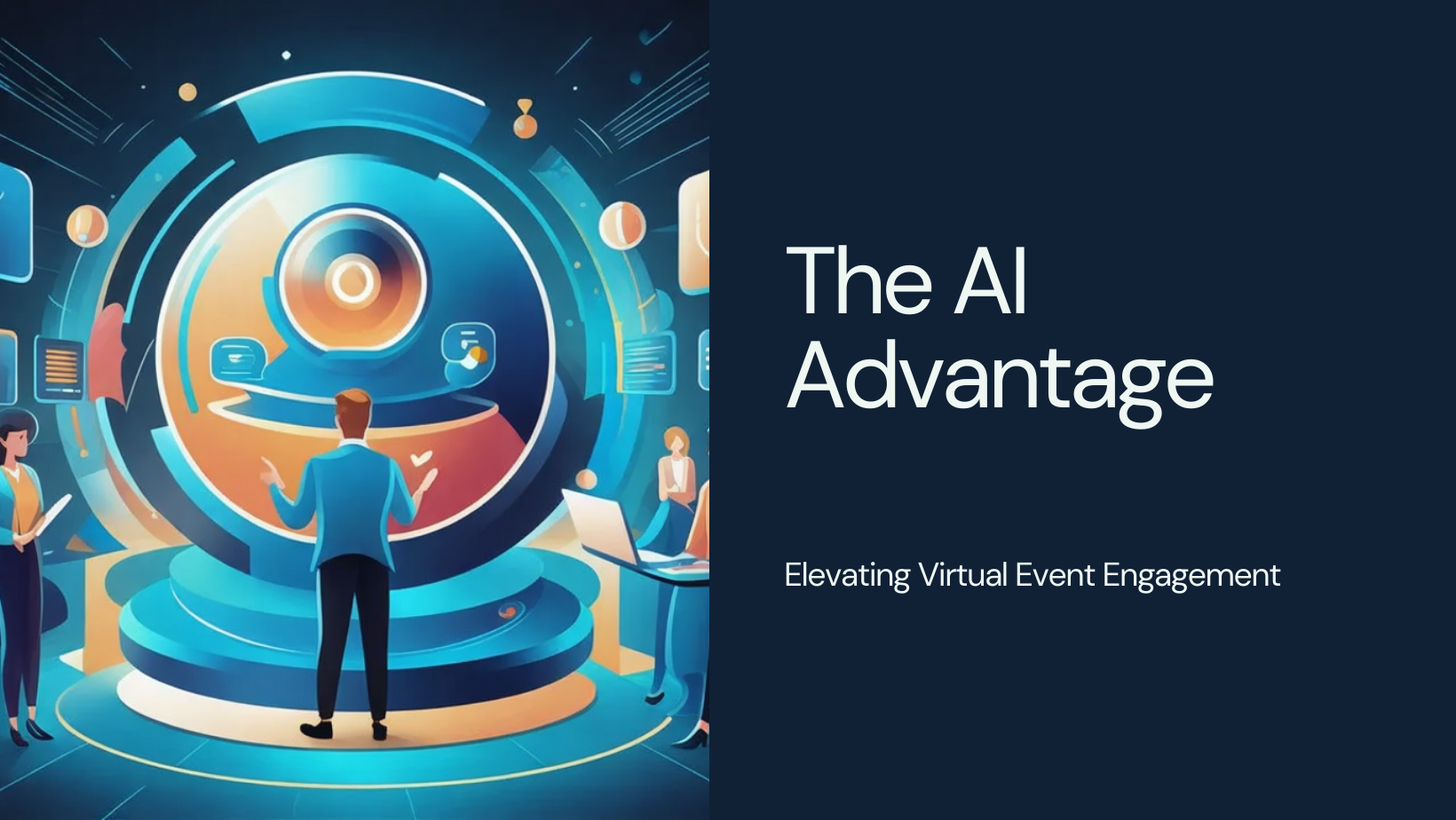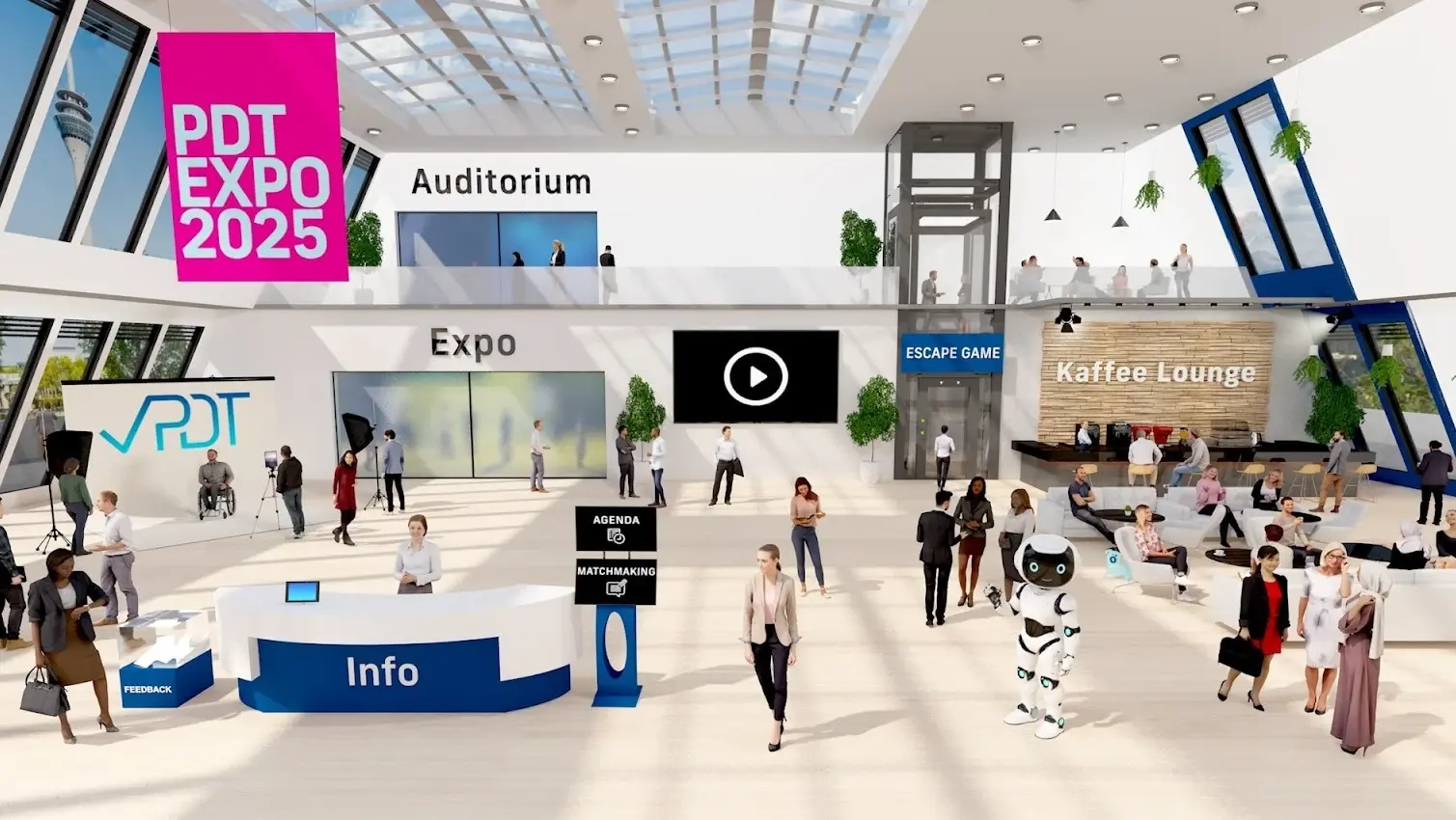Events are a vital part of any business, be it for creating brand awareness, launching products, building networks, or disseminating knowledge. However, physical locations can have their restrictions. This is where virtual events come into play, enabling more and more people to communicate, share ideas, and enjoy a shared experience.
Virtual events have become a foundation of modern-world communication, allowing people from all across the globe to connect and engage in a vast variety of online activities. From being limited to standard webinars and digital meetings, virtual events have evolved to a great extent. Today, virtual events occur in different forms, such as conferences, keynote speeches, partner events, trade shows, workshops, and product launches.
Changes in consumer behavior, especially during the outbreak of the COVID-19 pandemic, have played a role in rapidly accelerating the adoption of virtual events. But the integration of emerging technologies, like artificial intelligence, into virtual events now makes the experiences more secure, immersive, and interactive.
In this post, we’ll learn how AI has emerged as a powerful tool, providing innovative solutions for raising virtual event engagement for organizing teams and attendees.
AI-Powered Personalization
The integration of artificial intelligence in virtual event management is not solely about task automation; it is also about increasing efficiency, creativity, and personalization.
AI is capable of tailoring the event experience for attendees by analyzing their behavior, preferences, and feedback from previous events. This is useful in offering them personalized event experiences, making them more engaging.
AI-driven algorithms can use data to connect like-minded individuals to ensure that attendees make valuable connections, promoting opportunities for collaboration and business development. For more efficient and productive networking, AI-powered networking tools can schedule meetings and suggest optimal meeting locations as well.
AI makes the experience even more secure and stable with the integration of virtual private networks (VPNs). The use of secure tailored VPNs, like ones for torrenting, enables organizing teams to safely deploy AI solutions, while attendees can have an immersive experience and more open interactions, knowing their digital presence is safeguarded.
Event apps that use AI suggest sessions, workshops, and communication that are most relevant to each attendee. This way, attendees are more likely to engage with content that goes with their interests and preferences, thus enhancing their overall virtual event experience.
Better Interaction with AI
AI is working wonders by offering real-time translation services at virtual events. The natural language processing (NLP) algorithms of AI can transcribe and translate spoken language into an array of languages during sessions, presentations, or panels, enabling attendees to understand the content and completely partake in the event.
What’s more, chatbots and virtual assistants, powered by AI, have emerged as important tools in the event management field. They can engage with attendees in real-time at multiple stages of an event, e.g., before, during, and after, and provide instant responses to their queries, reducing the workload on organizing teams.
Basically, these chatbots use NLP to handle attendee inquiries, provide personalized responses, offer quick assistance, and guide attendees on the event agenda, making their experience seamless. Organizers can rely on virtual assistants to get help with several event-related tasks, such as registration, agenda planning, surveys, etc. while focusing on more strategic aspects of event planning.

Data-Driven Insights for Better Event Planning
Organizers can harness AI for real-time analytics to monitor engagement levels, participation rates, and sentiment analysis during the event.
The capability of analyzing attendee data, customizing marketing content, and offering personalized recommendations allows organizers to create highly effective marketing plans that are more likely to match the expectations of attendees and drive the success of their events.
Additionally, AI’s predictive capabilities can provide attendee turnout, profit generation, and other important metrics that help teams make informed decisions. AI-powered tools can provide real-time analytics and insights, enabling event organizers to monitor performance metrics, evaluate return on investment (ROI), and make improvements on the fly.
With the help of these tools, organizers can identify factors contributing to event success and failure and make data-driven decisions that boost ROI.
Future Trends of AI in Virtual Events
Coming to the future trends of AI in virtual events, augmented reality (AR) and virtual reality (VR) are taking center stage to offer engaging and interactive experiences. These technologies are useful for virtual events with remote attendees.
Their immersive booth experiences simulate the physical presence similar to in-person events, including realistic navigation features like a building directory to guide attendees through virtual venues. This changes the way attendees experience events and their level of engagement with other participants. Furthermore, interactive product demonstrations are likely to occur in the time to come.
Another trend to follow is facial recognition for higher security. AI’s integration into facial recognition technology is a significant step for event security. This integration in virtual events speeds up the check-in process, mitigates the risk of unauthorized access, and increases the overall attendee security while offering a more tailored experience.
Last but not least, the future also involves the use of AI to auto-generate all-inclusive reports on several aspects of the event, such as peak attendance times, session popularity, attendee involvement, and overall satisfaction.
AI can perform analysis on post-event surveys, social media mentions, and similar sources to offer insights into the event’s success or failure. Organizers can get a thorough understanding of attendee preferences and areas for improvement. Such insights can assist in the planning of future events according to the needs and preferences of attendees.
Summary
Artificial intelligence is impressively refining the virtual event experience for both organizers and attendees. While AI makes event planning easier for organizers with task automation, it offers attendees tailored event experiences by analyzing their activities, preferences, and behavior.
This technology facilitates networking by connecting like-minded individuals and drives success by providing real-time analytics and insights that help organizers track performance metrics, assess profit, and make improvements accordingly.
Considering the advancement in machine learning and natural language processing, AI is expected to further revolutionize the virtual event industry. The continuous integration of emerging technologies, like AR, VR, etc., with AI, will surely take virtual event engagement to new heights.






